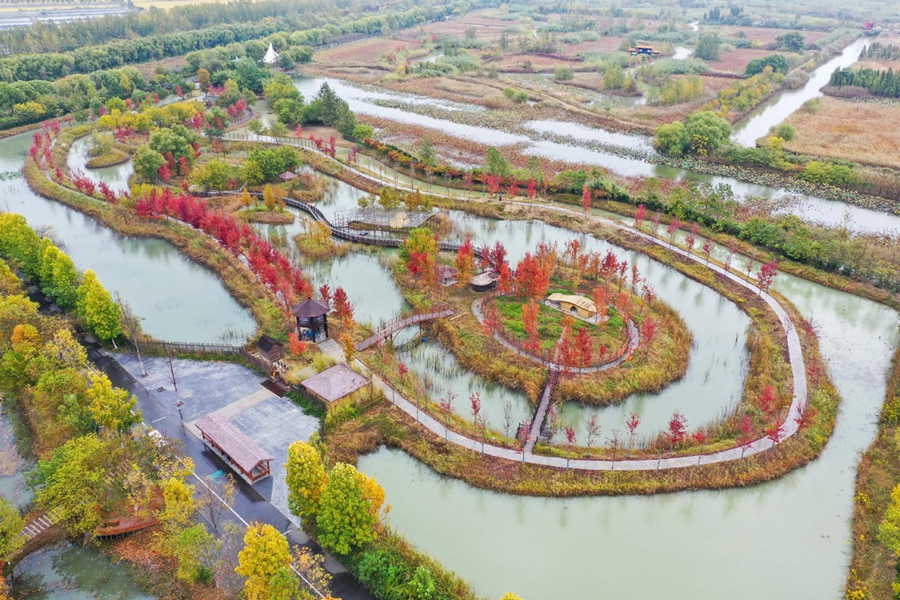New plan released to strengthen safeguards
 This aerial photo taken on Oct 26, 2022 shows the autumn scenery of Hongze Lake Wetland Scenic Area in Sihong county, East China's Jiangsu province. [Photo/Xinhua]
This aerial photo taken on Oct 26, 2022 shows the autumn scenery of Hongze Lake Wetland Scenic Area in Sihong county, East China's Jiangsu province. [Photo/Xinhua]
China has demonstrated its determination and abilities in wetland protection by releasing far-reaching plans and making notable environmental improvements, officials said.
According to a plan released by the central government last month, China will have protected 55 percent of its wetland and added 20 wetland areas of international importance and 50 of national importance by 2025.
The plan, issued by the National Forestry and Grassland Administration and the Ministry of Natural Resources, said restoration projects will be carried out on 30 wetland areas.
"Wetland" refers to a natural or artificial area with standing water, either year-round or seasonally, and significant ecological functions. The term also includes coastal areas where the water is no more than 6 meters deep at low tide, but excludes paddy fields and expanses of water used for aquaculture and artificial breeding purposes.
China's wetland protection rate now exceeds 50 percent, up from 43.5 percent in 2015, and it is home to 64 wetland areas of international importance and 29 of national importance, the administration said.
After becoming a contracting party to the Ramsar Convention on Wetlands in 1992, China embarked on the task of wetland protection and had fully assessed its wetland data and conditions by 2003. China was one of the first countries to complete three national wetland resource surveys via field monitoring stations and information management platforms. By 2015, China had finished initial wetland protection work.
Comprehensive protection has been further strengthened after the country's first specialized law on wetland protection was adopted on June 1, the administration said. As home to 4 percent of the world's wetland areas, China has met the needs of 20 percent of the global population for wetland-related life and culture, it added.
In May, members of staff at the Dafeng Milu National Nature Reserve in Jiangsu province found more than 50 eggs of the black-headed gull, which is under first-class national protection, on a beach, according to a report in Dafeng Daily.
The paper noted that it was the first evidence that the species had bred at the coastal reserve, and said it was the result of protection efforts in recent years that have seen 1,333 hectares of land returned to wetland after use as fishing ponds.
Farther afield, since 2014, the central government has allocated funds to compensate for damage to crops caused by birds, milu (an indigenous deer species) and other animals living within a 1-kilometer radius of the wetland in Dongting Lake, Hunan province.